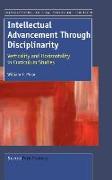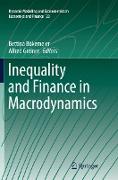Intellectual Advancement Through Disciplinarity: Verticality and Horizontality in Curriculum Studies
BücherAngebote / Angebote:
Skepticism toward disciplinarity, William F. Pinar points out, is etched deeply in the U.S. field, drawn by progressive education's efforts to reconfigure the school curriculum as child-centered and/or as focused on social reconstruction. Skepticism toward disciplinarity had also been affirmed by Bobbitt and Charters' positioning of adult activity as the organizer of the school curriculum. Add to these historical dispositions the contemporary legitimation crisis of the academic disciplines and the rage for interdisciplinary, trans-disciplinary, post-disciplinary - anything but disciplinary - research and curriculum becomes intelligible.The intellectual labor of understanding constitutes the discipline of disciplinarity. Through the discipline of disciplinarity one contributes to the field's intellectual advancement and to one's own. Appreciating the centrality of disciplinarity to intellectual advancement requires us, Pinar argues, to replace Schwab's syntactical and substantive structures of the disciplines. Focused on methodology and the concepts research methodology generates, Schwab's schema was more appropriate to the natural and social-behavioral sciences than it is to the humanities and the arts. Pinar replaces these with two structures more appropriate to a discipline associated with the humanities and the arts and focused on the education of the public: horizontality and verticality.Explicating Spivak's notion of "planetarity" to specify the structures of subjectivity these structures of disciplinarity invite, Pinar illustrates these concepts through introductions to the scholarship of Ted Aoki, Tom Barone, Mary Aswell Doll, Maxine Greene, James Henderson, Dwayne Huebner, Rita Irwin, David Jardine, Kathleen Kesson, James B. Macdonald, Janet Miller, Marla Morris, Alice Pitt, William Reynolds, John Weaver, among others.Of significance to all specializations in the broad and fragmented academic field of education, Intellectual Advancement through Disciplinarity provides the intellectual tools by means of which education scholars worldwide can participate in the complicated conversation that is internationalization in order to contribute to the intellectual sophistication of their nationally distinctive fields.William F. Pinar teaches curriculum theory at the University of British Columbia, where he holds a Canada Research Chair and directs the Centre for the Study of the Internationalization of Curriculum Studies.
Folgt in ca. 15 Arbeitstagen




